THE WASHINGTON POST: Revenge attacks in post-Assad Syria fuel fear and mistrust
THE WASHINGTON POST: ‘Something is very wrong here,’ a woman said. After Assad’s sudden fall, many in this coastal province of Latakia fear they will be made to pay for the crimes of his regime.
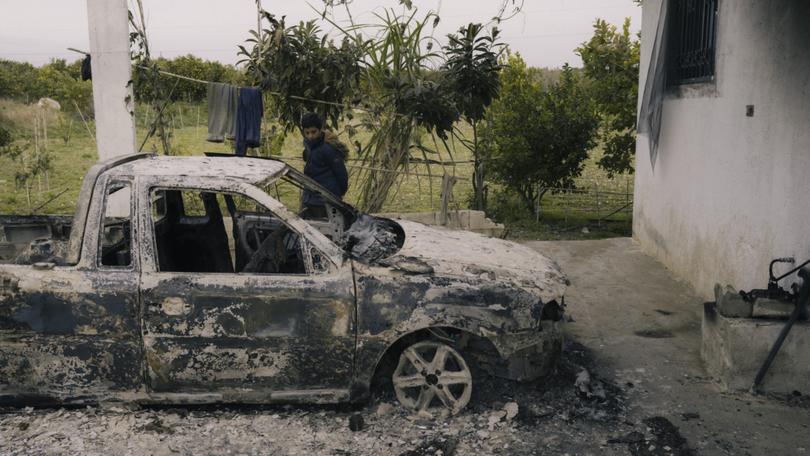
AL-HAKEEM, Syria - The woman was clutching her infant, still in the dressing gown and pajamas she had been wearing a day earlier when fighters overran this village in Syria’s Latakia province, the heartland of Bashar al-Assad’s Alawite minority sect.
Her scorched home still radiated heat from the fires they had set. She hadn’t seen her husband since he fled into the citrus groves.
“We are dying from fear,” she said, standing outside the house, speaking on the condition of anonymity for fear of reprisals. “It’s as though our hearts are in our hands.”
Sign up to The Nightly's newsletters.
Get the first look at the digital newspaper, curated daily stories and breaking headlines delivered to your inbox.
By continuing you agree to our Terms and Privacy Policy.Rebels burned four homes Sunday in the retaliatory attack, a day after a family in al-Hakeem had attacked one of their pickup trucks, killing at least three fighters.
Of the 70 families who lived here, only a few remained Monday, and they too were thinking of leaving.
“Something is very wrong here,” the woman said. After Assad’s sudden fall, many in this coastal province fear they will be made to pay for the crimes of his regime.
Hay’at Tahrir al-Sham, the Islamist rebel group that led the charge on Damascus and is now trying to consolidate its rule, has pledged to protect minorities and restore security to Syria after a brutal 13-year civil war.

But in Latakia, and across the country, HTS is struggling to contain revenge attacks, as vigilantes seize on the chaos of the moment to settle personal and sectarian scores.
Over the past week, Washington Post reporters saw evidence of extrajudicial killings in Damascus and Hama province, and verified two videos showing fighters executing alleged members of Syria’s state security forces. While the violence so far appears scattered and disorganized, preventing it from spiralling will be a key test for HTS as it seeks to unite a fractured country only loosely controlled by different armed factions.
Asked for comment, an HTS spokesman referred The Post to official channels and cautioned reporters against “fake news.” The group has said publicly that it plans reconciliation in Syria based on “justice and accountability.”
“We will work to address the effects of the past through transparent mechanisms aimed at achieving lasting peace and restoring the social fabric,” it said in a recent statement.
“The leaders are showing a nice face,” Sheikh Ahmed Banawi, 56, the Alawite leader in al-Hakeem, said of HTS. But he didn’t trust them to rein in the armed men who now “invaded” the village in their trucks on a daily basis and made threats, he said.
He admits there were some “bad people” here - the family who attacked the rebels’ truck was known for its criminality, he said. “Don’t include us all,” he pleaded. “They left and we are the ones paying the price.”
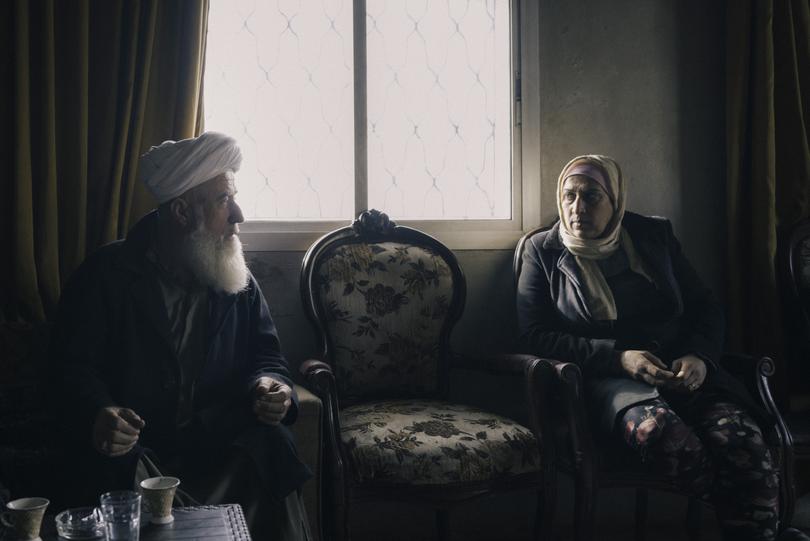
At a nearby checkpoint was Seif Mohammed, 40, a fighter with Faylaq al-Sham, a Turkish-backed armed faction that is now coordinating with HTS.
He said they were called to the village to deal with a looting incident when their vehicle came under fire. A rebel angered by the killings had burned the homes and was under investigation, Mohammed said, but he didn’t identify the culprit or say what group he belonged to.
“We’ve been deployed here to stop any attacks,” he said. As he spoke, Banawi and his family drove past, crammed into an aging Nissan. They had packed their bags, hoping to make it to Turkey. He was trying to sell his land.
Alawites make up roughly 10 percent of Syria’s population, and many live in mountain villages like this one, above Latakia’s coastal plains. While a small circle of Alawites reaped the rewards of Assad’s rule, many continued to live in grinding poverty, and said they had little choice but to serve in the military.
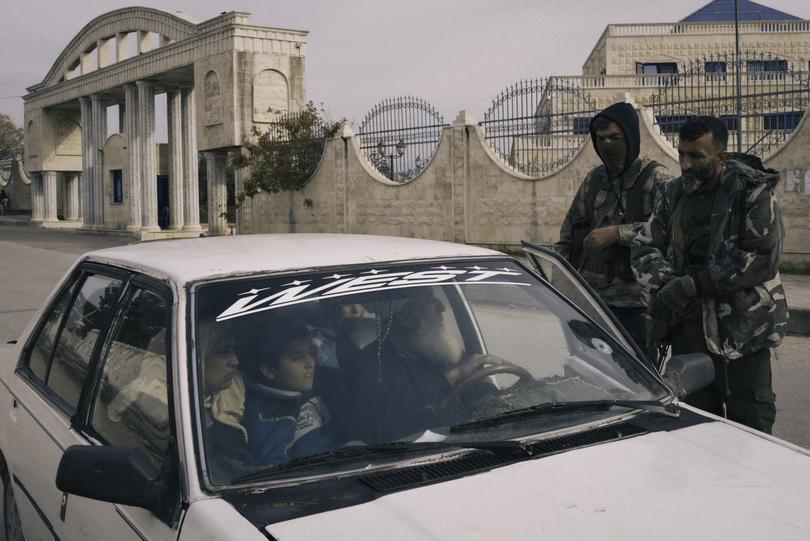
But many Syrians associate them with the regime and with Assad’s shadowy militias, known as shabiha, notorious for torturing and killing his critics.
“They are shabiha,” says a person filming a video posted to X on Dec. 10, geolocated by online researchers to Rabia, just west of Hama, and verified by The Post. A militant kicks the bloodied face of an apparently lifeless man on the floor. Another man with his hands and feet bound is kicked in the face behind him.
The camera pans to show two other men in civilian clothes on the ground. “The pigs,” the person filming said, repeatedly using a slur for Alawites.
“God knows how long we’ve been patient, God knows how long you’ve worked [for the Assad regime].” The two men lie face down and are shot multiple times at close range. The Post could not confirm the identities of the perpetrators or the victims.
Another video posted to Telegram on Dec. 9 by a journalist based in Idlib, where HTS is based, and verified by The Post shows a fighter in military garb conducting a roadside execution of two men.
“These are pigs; officers from Assad forces were trying to escape,” the fighter says to the camera, holding a silver handgun and leaning out of a car. The two alleged officers, dressed in civilian clothes, kneel on the sidewalk with their hands cable-tied behind their backs.
“Sheikh, give us a chance, we are with you,” one of them says before another rebel yells, “Takbir!” - a call to praise God - and at least eight shots are fired. The two men fall to the ground. Their hands twitch for a few seconds, then are still. The Post could not confirm the location of the video or the identity or affiliation of the fighters.
Some of the men in the first video wore patches with lettering similar in style to that used by the Islamic State militant group. HTS has sought to distance itself from its past affiliation with al-Qaeda, but there are still extremists and foreign fighters among its ranks. Armed men wearing the same insignia were visible at the gates of the Turkish Embassy in Damascus earlier this week.
The revenge videos, and others like it, have circulated widely on social media, stoking fear and suspicion. “Who is the judge? Who decides who is shabiha or not?” said one Alawite community leader in Latakia, speaking on the condition of anonymity for fear of retribution. “Who can control this? It’s only a matter of time before it explodes.”
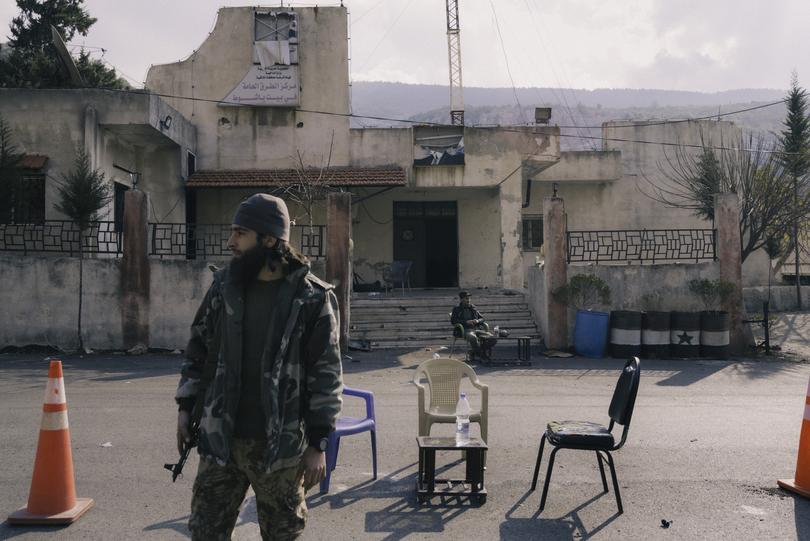
HTS has announced an amnesty for former army officers and police and has opened centers around the country for them to give up their arms. But it has also vowed to hunt down “war criminals” and those implicated in bloodshed.
At a “reconciliation center” in Latakia, the line snaked hundreds of yards down the street as former police and military personnel waited for a chance to clear their name.
“The card helps them move around safely,” said Mohammed Mustafa, 28, next to a fighter taking pictures of the former soldiers as they held up an assigned number. After three months, they’ll be called in again, he said. “We’ll decide if they are clean.”
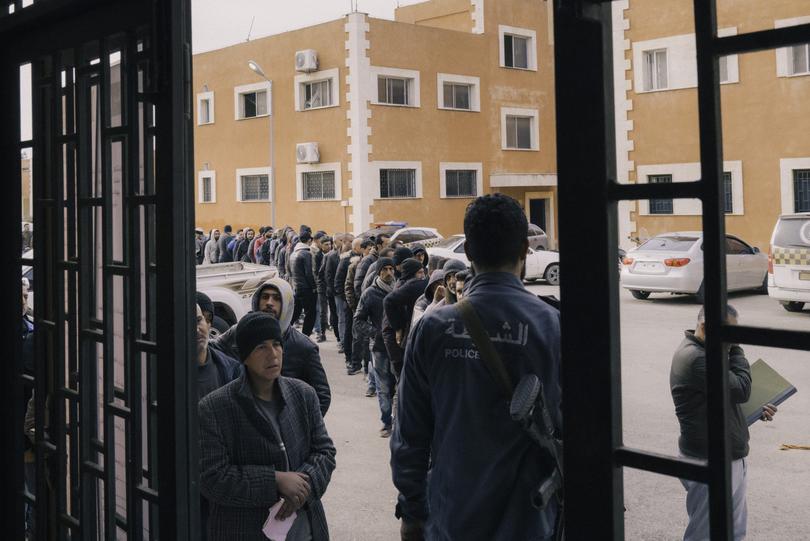
Stacks of Kalashnikovs and pistols were piled up in a side room. But not everyone here is surrendering their weapons, according to Alawite community leaders, who said some expect they will have to fight.
The community is not alone in its fear and uncertainty. In the hilltop town of Masyaf, in central Hama province — home to Shiite Muslims, Christians and Alawites — residents were divided this week over whether to talk about the men who had been kidnapped.
Community leaders said they were “optimistic” about the future under HTS.
“The new situation is much better, we’re looking forward to a new life,” said Mustafa Saab, an imam, saying the new rebel leadership had assured them they would be protected. Local elders nodded in agreement.
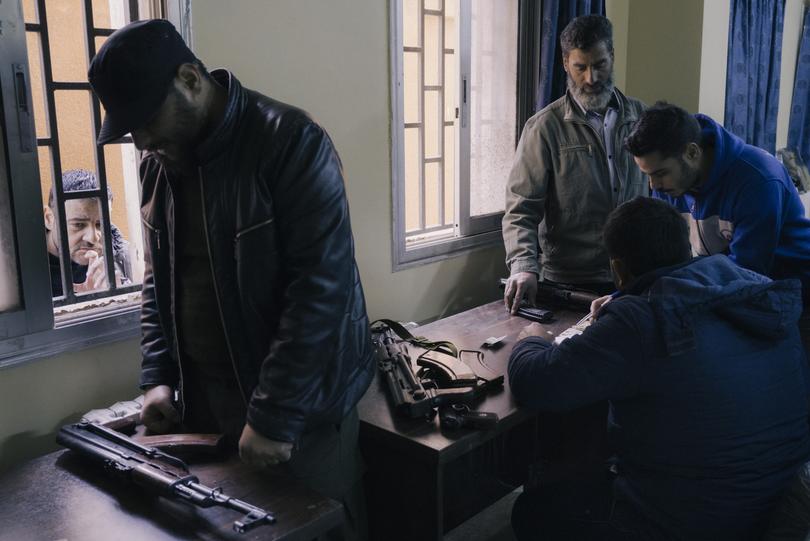
But at the back of the room, a group of young men grew frustrated.
“The regime isn’t here anymore — why aren’t you speaking freely?” one shouted.
“Tell them about the killings, tell them about the four bodies.”
They had been dumped by the side of the road six miles outside of town, residents said, and were now in the morgue. Post reporters saw them there, and each appeared to have been badly abused.
Mehyiaddin al-Heybi, a member of the town’s Twelver Shiite community, was recognizable from the lion tattoo across his shoulder. He appeared to have been executed, with gunshot wounds to the head, back and chest.
Armed militants had burst into his house looking for his cousin, Ammar, a local sheikh who residents said had ties to Iranian-backed groups. His family denied the allegation.
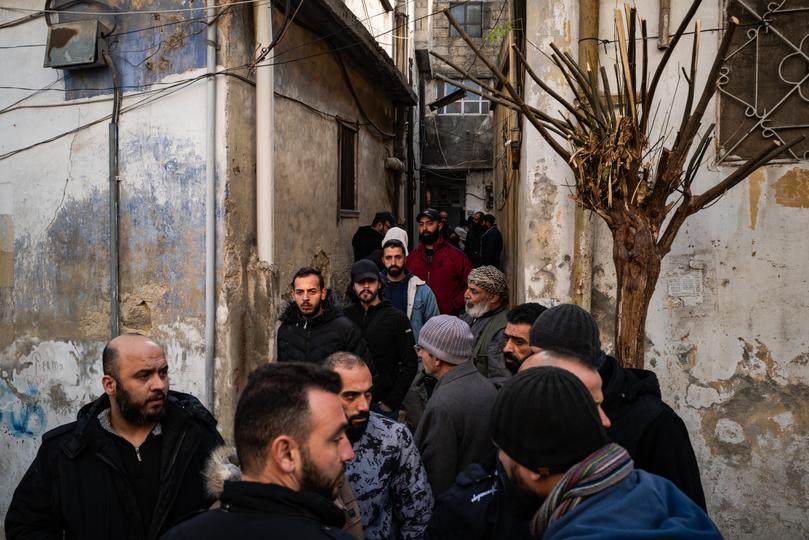
When they couldn’t find Ammar, the men took Heybi instead.
“They put a weapon to Mehyiaddin’s head, although we were screaming at them not to; we were telling them you can’t just enter someone’s home,” said his mother, Maryam Kabalan. Heybi’s wife, Batool, said the militants had taken a second man from the town, but she did not name him. Their bodies were found alongside two unidentified corpses.
At a morgue in Damascus on Thursday, there were other stories of violent score-settling in the lawless days after Assad’s fall. Mustafa Mahmoud, 22, was stooped down next to his brother’s body, laid out on a metal trolley. His cousin’s corpse lay in a black body bag in an adjoining room. They were members of the opposition and had been targeted by pro-Assad thugs while walking in the street, he said.
“They’d wanted to execute us for a long time,” said Mahmoud, as he signed papers for the release of their bodies.
Outside the morgue were desperate families, hoping for news of their loved ones, among the tens of thousands who disappeared into Assad’s now-empty prisons. As they waited, HTS fighters pulled up in a Toyota pickup truck with three bodies under a gray blanket in the back.
As the families surged forward, a fighter yelled at them: “They are shabiha; they are not your sons!”
Another rebel pulled out a phone to show a picture of one of the bodies, a man with a gaping slash wound across his throat. It was not clear who the men were, or who had killed them.
In the crowd, hope and grief turned to anger.
“Go outside and kill them like they killed our children,” screamed a woman who was searching for her two teenage boys, who were arrested from their classroom in 2015 and never seen again.
“We want revenge,” she screamed.
- - -
Loveluck reported from Masyaf, Tabrizy from New York and Piper from London. Mustafa Salim in Baghdad contributed to this report.
© 2024 , The Washington Post
